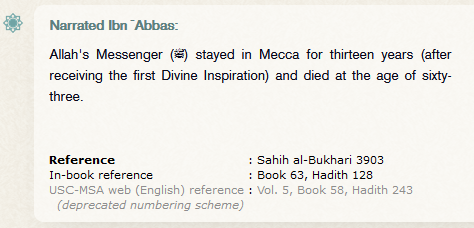
-=[Sunni vs Shia Hadith - Variety of Sources]=-
When assessing which of the two general historical accounts is more likelier to be true, the first and most obvious evidence for the Sunni case is the variety of sources.
1/7
When assessing which of the two general historical accounts is more likelier to be true, the first and most obvious evidence for the Sunni case is the variety of sources.
1/7
Variety is key. The existence of a variety of compilations and sources is naturally evidence for the reliability of a general account. The variety allows us to verify documented text due to corroborations. This can be achieved on several levels starting with the level of authors.
1st form of variety:
Who were on Al-Bukhari's (d. 256) tabaqa (level)?
Imam Ahmad (d. 241), Al-Darimi (d. 255), Muslim (d. 261), Ibn Majah (d. 273), Abu Dawud (d. 275), Al-Tirmithi (d. 279), and others.
We have a variety of sources that go through this tabaqa.
Who were on Al-Bukhari's (d. 256) tabaqa (level)?
Imam Ahmad (d. 241), Al-Darimi (d. 255), Muslim (d. 261), Ibn Majah (d. 273), Abu Dawud (d. 275), Al-Tirmithi (d. 279), and others.
We have a variety of sources that go through this tabaqa.
On the other hand, the only scholar that is on the tabaqa of Al-Kulayni that has a book that is still extant, Ali Ibn Babuyah. His Al-Imama wal Tabsira is a very short work and can barely be used to verify Al-Kulayni's contents.
2nd form of variety:
While Sunni hadith circles were common in Madina, Makkah, Basra, Kufa, Sham, Egypt, Yemen, Isfahan, Nisapur, Jurjan, etc, Shias were limited to Kufa and Qum. The likelihood of collusion in two cities is a lot less likely than the vast nation in general.
While Sunni hadith circles were common in Madina, Makkah, Basra, Kufa, Sham, Egypt, Yemen, Isfahan, Nisapur, Jurjan, etc, Shias were limited to Kufa and Qum. The likelihood of collusion in two cities is a lot less likely than the vast nation in general.
3rd form of variety:
A common Shia argument is, "We only take our narrations from Ahlulbayt." This is not appealing to any historian. A thousand eye-witnesses of a historical context are being dismissed for ideological reasons is a major red flag.
A common Shia argument is, "We only take our narrations from Ahlulbayt." This is not appealing to any historian. A thousand eye-witnesses of a historical context are being dismissed for ideological reasons is a major red flag.
The case for Sunni hadith on variety alone is appealing, however, this is far from the only thing that Sunnism has going for it.
More to come soon.
Stay tuned.
More to come soon.
Stay tuned.
• • •
Missing some Tweet in this thread? You can try to
force a refresh















